Lebanese people form nationwide human chain in solidarity with protests
Tens of thousands of people in Lebanon have formed a 170-kilometer-long human chain stretching the length of the Arab country in a show of unity and solidarity with anti-government protests.
According to organizers, the human chain on Sunday was successfully formed as protesters held hands from Tripoli in the north to Tyre in the south, running through capital Beirut, the main protest hub against the Mediterranean country’s economic crisis.
In capital, men, women and children held hands, some waving Lebanese flags and many singing the national anthem.

“I can confirm that the human chain was a success. The idea behind this human chain is to show an image of a Lebanon which, from north to south, rejects any sectarian affiliation,” said Julie Tegho Bou Nassif, a history professor and one of the organizers.
She also said that there was no political demand behind the human chain and that its main purpose was to “send a message by simply holding hands under the Lebanese flag.”
Since October 17, the Lebanese in Beirut and other cities have been taking to the streets to express their strong discontent with the government’s failure to find solutions to the country’s economic crisis.

The unprecedented cross-sectarian mobilization seems to be triggered initially by the planned taxes on gasoline, tobacco and online phone calls such as through WhatsApp.
The leaderless protest rallies have been noteworthy for their territorial reach and the absence of political or sectarian banners.
On Monday, embattled Prime Minister Saad Hariri announced a package of economic reforms which aims to revive an almost collapsed economy, but the move has failed to stop the protests.
On Thursday, Lebanese President Michel Aoun, for his part, expressed readiness for dialog with anti-graft protesters.
Hamas to Abbas: Israel never awaited excuses to tyrannize Palestinians
VIDEO | Genocide against Palestinians
Anti-Islam Wilders's coalition deal spells sharp shift to hard-right
VIDEO | Nakba: Is history repeating itself?
Putin in Beijing: Russia, China agree to deepen ‘strategic partnership’
VIDEO | Press TV's news headlines
VIDEO | Nakba Day 2024, ongoing genocide
VIDEO | Gaza: The new Nakba




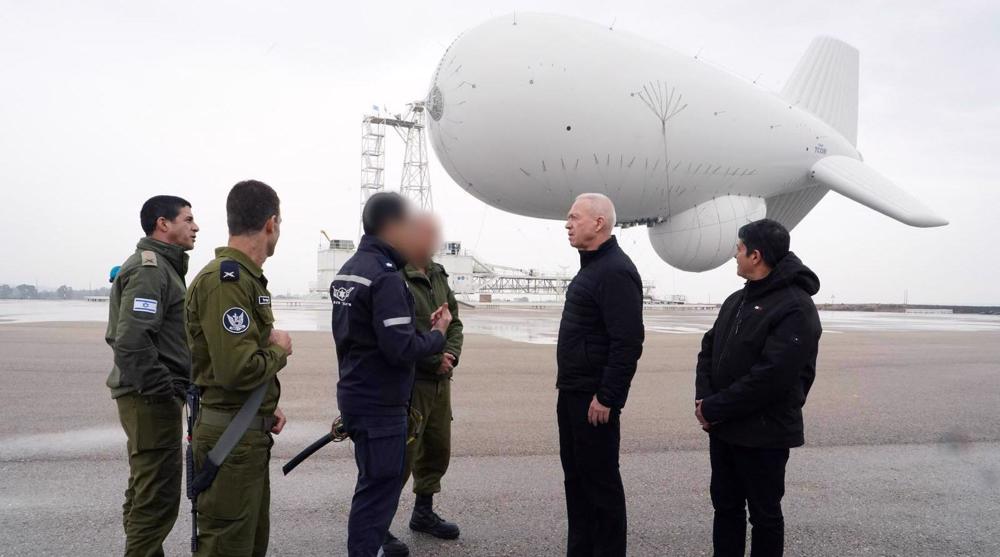
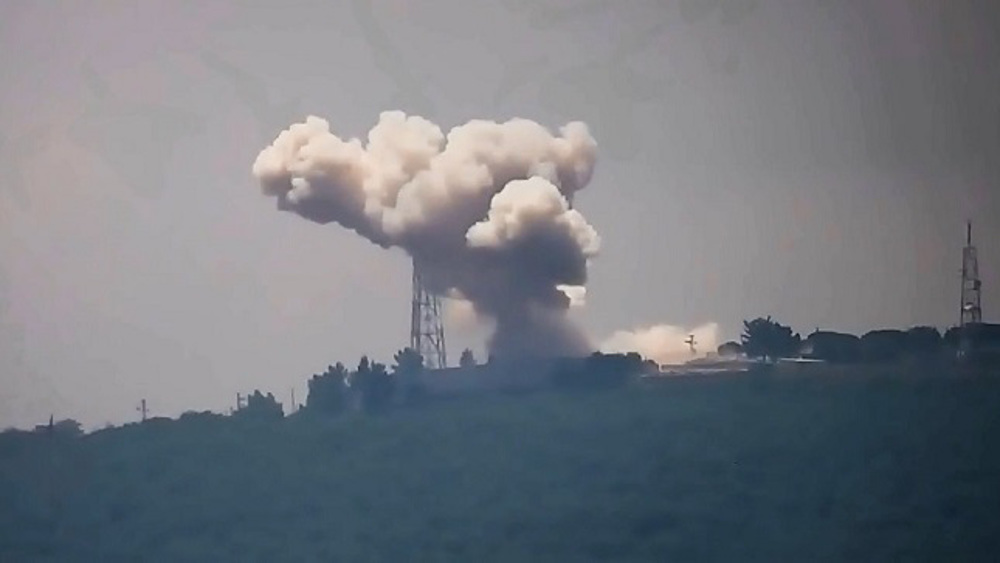
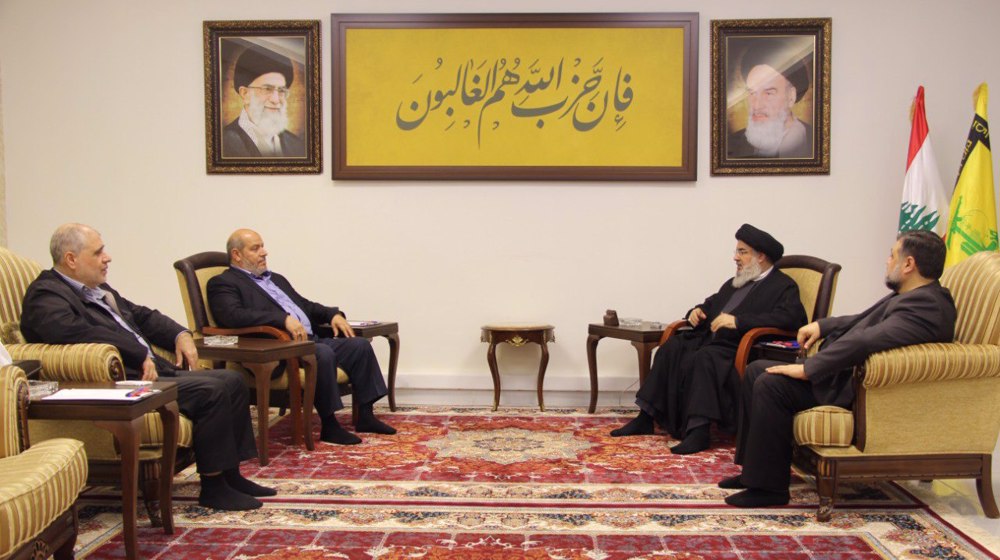





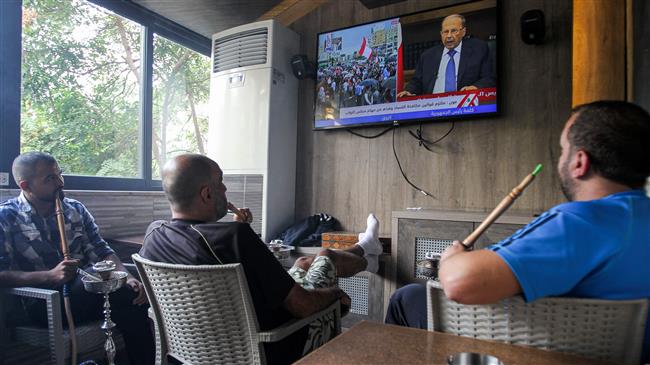
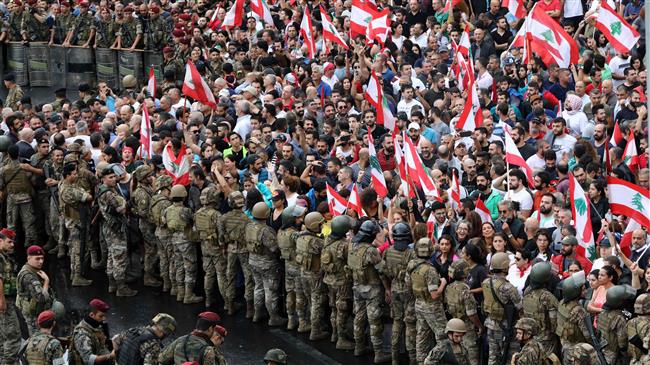

 This makes it easy to access the Press TV website
This makes it easy to access the Press TV website